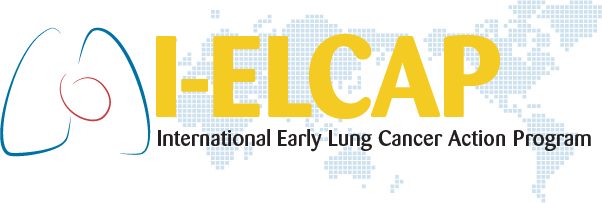Previous Meetings
The 12th International Conference on Screening for Lung Cancer
Friday, April 8, 2005 to Sunday, April 10, 2005
Nara – Ken New Public Hall, Nara, Japan
Nara
Japan
Agenda: 12th Conference Agenda
Mission:
The broadest mission of these Conferences is the collective pursuit of avant-garde understanding of the issues surrounding screening for lung cancer, the broadest subissues being early diagnosis and early intervention. Any given Conference focuses on issues that are particularly topical at the time.As always, the Conference will provide an update of research on and practice of screening for lung cancer, including updates of I-ELCAP protocols and results of research.
The 10th and 11th Conferences focused on the results on the diagnostic performance of the I-ELCAP protocol for CT screening and on alternatives to resection in early intervention.Another focus was what can be said about it to people asking their physicians for advice about CT screening for lung cancer; that is, about the likelihood that a particular round of screening would detect cancer in him/her, the likelihood that early intervention could cure such a cancer, and that (s)he would avoid death from another cause for a decade or whatever period.The 12th Conference will highlight the evaluation by the Japanese and I-ELCAP groups as to the benefit of CT screening for lung cancer.
Consensus Statement:
This conference again addressed the two broad missions of these conferences — advancement policy-relevant research on early diagnosis of lung cancer and translation of up-to-date understandings into guidelines for practice based on the accumulated evidence from the International Early Lung Cancer Action Program (I-ELCAP) consortium. Experience with screening performed by individual institutions were presented for one, the Japanese National Cancer Center Association against Lung Cancer (ALCA), Hitachi’s employee screening program, and the Mayo Clinic screening program. The Japanese Lung Cancer Screening Study (JLCS) group reported on its nationally-based study comparing 46,733 people who had at least 1 CT screening test with 91,970 people who had at least 1 chest radiography screening. I-ELCAP presented its data on over 28,000 people who have had over 50,000 screenings. Overall, thus, this conference reviewed the largest ever experience with CT screening for lung cancer.
The final results of the JLCS will be reported in 2007, but its 2005 interim report already demonstrated a difference in the deaths from lung cancer in favor of CT screening.I-ELCAP presented its approach to screening research and the assessment of its benefit — a two-step approach focusing first on the diagnostic performance and then on the prognostic implications. Diagnostically the concern is, how early the diagnosis of lung cancer is achieved while minimizing work-up including biopsies and prognostically the focus in on the preventability of death from lung cancer that is provided by early intervention following early diagnosis. In the I-ELCAP experience over 80% of diagnoses have been achieved in Stage I, with 90% of biopsies resulting in a diagnosis of malignancy showing that the high proportion of Stage I diagnoses can be achieved with very few false positives. Critical in achieving this diagnostic performance is that the I-ELCAP regimen of screening is used which emphasizes nodule growth assessment prior to biopsy. The I-ELCAP also presented results pertaining to prognosis which confirm that screen-diagnosed lung cancers typically lead to death if not treated, with potentially an estimated 10% of cases being so slow-growing as to be not be fatal if not treated.It was shown that when the lung cancer is diagnosed in Stage I its curability is high (above 90%). Thus it is estimated that some 80% of deaths from lung cancer could be prevented by early intervention under CT screening. The I-ELCAP also showed that competing causes of death in the highest-risk subcohort of people aged 60-75 years with at least 30-80 pack-years of smoking, the 5- and 10-year rates of death from causes other than lung cancer (conditional on not dying from lung cancer) were low, 3 and 7 percent, respectively.
Japanese studies on limited resection, transbronchoscopic brachytherapy, percutaneous microwave and radiofrequency ablation, cryosurgery, heavy-particle radiation therapy and sterotatic radiation therapy showed promise in providing treatment alternatives for early lung cancer. The I-ELCAP surgical and radiotherapy results were also promising. Pathologic and molecular features of early cancer which may guide treatment decisions were also presented. All these topics were discussed at the workshops.One workshop focused on CT-guided fine-needle aspiration biopsy and issues of follow-up central to a regimen of screening. Yet another workshop focused on multi-center treatment trials and the critical issues to be studied as well as potential new treatment trials. The third workshop focused on computer-aided detection and characterization to deal with increasing number of images per person which can now be produced by a single CT scan.
Scientific presentations and poster presentations remained a focal point of the conference.
